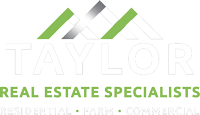What is a 1031 Exchange for Farmland?
A 1031 exchange allows you to sell an investment or business-use property and buy another of equal or greater value, deferring capital gains tax, depreciation recapture tax, state taxes, and healthcare tax.
10 Things to Know About a Farmland 1031 Exchange:
-
Equal or Greater Value: To defer all taxes, the replacement property must be of equal or greater value than the relinquished property’s net selling price. This is the contract price minus closing costs. If you buy a lesser property, you will pay taxes on the difference.
-
Investment or Business Use: The property must be used for investment or business purposes. Primary residences, second homes, or properties not for business use do not qualify.
-
Types of Qualifying Property: Investment properties like land, commercial real estate, multi-family homes, and condos qualify for a 1031 exchange. Primary residences do not.
-
180-Day Time Frame: You have 180 days from the sale of the relinquished property to complete the exchange. The clock starts the day you sell.
-
45-Day Identification Period: Within the first 45 days, you must identify up to three replacement properties. The value of identified properties cannot exceed 200% of the relinquished property’s net selling price.
-
Qualified Intermediary Required: You must use a Qualified Intermediary (QI) to complete the exchange. This cannot be your REALTOR®, CPA, attorney, or financial advisor. Choose a QI with a Certified Exchange Specialist® (CES®) designation for added expertise.
-
Property Flexibility: You can exchange different types of property. For example, you can trade commercial property for residential property or land for an apartment complex.
-
No Taxes with Continuous Exchange: If you continue to use 1031 exchanges, you can avoid paying taxes indefinitely. When you pass away, your estate inherits the property without capital gains taxes.
-
Consult a Tax Advisor: Always work with your CPA or tax advisor to ensure you meet all requirements and create a solid plan.
-
Start Early: Contact a Qualified Intermediary before closing on your relinquished property to begin the process of your 1031 exchange.
Final Thoughts:
A 1031 exchange is a valuable tool for farmland and real estate investors to defer taxes while reinvesting in new properties. With the right planning and guidance from experts, you can maximize the benefits of this tax-deferred exchange strategy. Contact Lisa today for expert assistance with your exchange!
Read more to understand the IRS’s definition of Like-Kind Exchanges.

